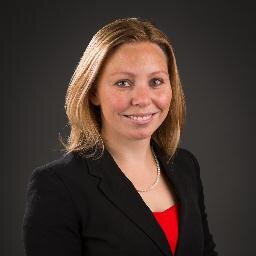Are climate discussions ignoring the self-determination of Arctic peoples?
On August 30-31, President Barak Obama traveled to Alaska to address the U.S. State Department’s conference on Global Leadership in the Arctic: Cooperation, Innovation, Engagement and Resilience (GLACIER), highlighting international and domestic priorities in the region. However, as politicians and activists seek to tackle the climate change challenges of the far North – rather than taking bold steps to curb emissions in other, more-consumptive regions of the world – the autonomy of Arctic peoples may be threatened.

GLACIER aimed to consolidate support for an ambitious joint commitment at the United Nations Framework Convention on Climate Change meeting (COP21) that will take place this December in Paris. Among the conference guests were the foreign ministers of Denmark, Finland, Iceland, Norway, Sweden, South Korea and the Netherlands, as well as President Obama, the first sitting president to visit the Alaskan Arctic. President Obama’s speech at GLACIER was perhaps the highest-profile one to date on climate change, and he used strong language about the need to grow clean-energy economies and reduce carbon pollution.
Discussions on a warming Arctic have been wrapped in debate over whether the president should allow drilling off the northern coast of Alaska. The “Arctic Paradox” – the expansion of available fossil fuels in the Arctic due to ice melt triggered by the burning of fossil fuels – has made the region an important battleground in the war against climate change.
“Northerners are being asked to disproportionately bear the burden of mitigating climate change, even as they disproportionately bear the burden of adapting to those changes,” writes contributing author Heather Exner-Pirot in Worldwatch’s State of the World 2015: Confronting Hidden Threats to Sustainability.

The rural regions of the Arctic have among the lowest human development outcomes in the developed world. Resource extraction in the region is seen by some Northerners as a way to provide much-needed livelihoods, revenues to fund public goods, and progress in achieving indigenous self-sufficiency. Yet Southern powers perceive such extractive activity in the Arctic as particularly harmful and dangerous for the climate, and many Southerners are calling for moratoriums, bans, or heavy regulatory burdens on resource exploitation in the far North.
“Imagine how hypocritical and arbitrary this sounds to Northerners, who see oil production continuing unabated and uncontested in the rest of the world, including the lower 48 states, where so many of the carbon emissions that have contributed to climate change have arisen,” says Exner-Pirot. “It would be far more constructive for [politicians] to work on reducing fossil fuel use in their own regions, rather than seeking to manage the consequences of this energy use in others.”
With melting ice and thawing permafrost, the Arctic is experiencing some of the greatest regional warming on Earth, and Northerners have the greatest stake in good environmental stewardship of the region. Progress has been made to restore self-determination to Northerners and indigenous peoples whose values and goals may differ from those of central governments.
“The Arctic is a homeland, and its inhabitants have fought hard in the past four decades to regain control over its governance, only to see it recast as a global commons,” says Exner-Pirot. “GLACIER sent a powerful message about climate change, but it also sent a message that America’s interest in its Arctic may not recognise voices of the Northernmost peoples.”
Worldwatch’s State of the World 2015 investigates hidden threats to sustainability, including economic, political, and environmental challenges that are often under-reported in the media. State of the World 2015 highlights the need to develop resilience to looming shocks.
